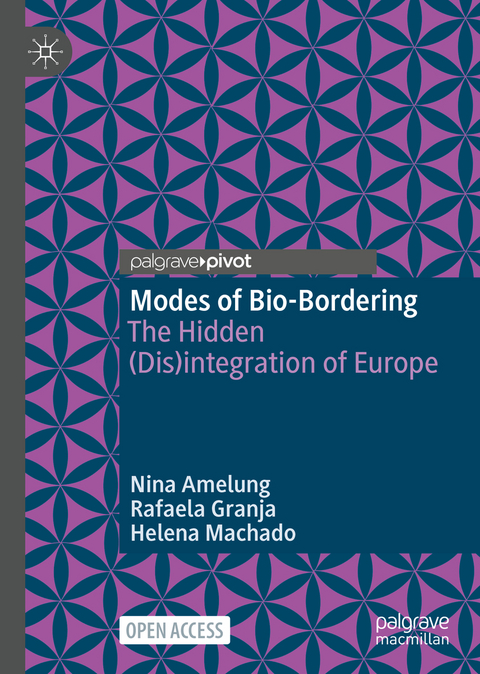
Modes of Bio-Bordering
Springer Verlag, Singapore
978-981-15-8182-3 (ISBN)
Nina Amelung, PhD, University of Minho, is a sociologist working in the project EXCHANGE, funded by European Research Council and led by Helena Machado. Her current research is on the democratic challenges of cross-border biometric data-exchange, and the making of publics in European crime, migration and border control regimes. Rafaela Granja, PhD, University of Minho, is a sociologist working in the project EXCHANGE. Her current research explores the transnational exchange of DNA data and controversies associated with scientific and technological innovations in the forensic field. Her previous work has focused on reconfigurations of family relationships inside and outside prisons. Helena Machado, Full Professor of Sociology, University of Minho, is a transdisciplinary researcher, engaging the social studies of science, bioethics, and sociological and criminological perspectives to explore how genetics creates acute challenges to citizenship, democracy and social control in contemporary societies.
Chapter 1 – Introduction.- Chapter 2 – A brief history of the evolution of forensic biometrics and biometric database systems crossing borders in EU law enforcement.- Chapter 3 – Biobordering as a concept.- Chapter 4 – Germany.- Chapter 5 – The Netherlands.- Chapter 6 – Poland.- Chapter 7 – Portugal.- Chapter 8 – The United Kingdom.- Chapter 9 – Conclusion.
| Erscheinungsdatum | 06.11.2020 |
|---|---|
| Zusatzinfo | 2 Illustrations, color; 2 Illustrations, black and white; XI, 151 p. 4 illus., 2 illus. in color. |
| Verlagsort | Singapore |
| Sprache | englisch |
| Maße | 148 x 210 mm |
| Themenwelt | Recht / Steuern ► Strafrecht ► Kriminologie |
| Sozialwissenschaften ► Soziologie ► Spezielle Soziologien | |
| Schlagworte | bioborders • Border studies • Crime Control • DNA Technologies • forensic genetics • open access |
| ISBN-10 | 981-15-8182-7 / 9811581827 |
| ISBN-13 | 978-981-15-8182-3 / 9789811581823 |
| Zustand | Neuware |
| Haben Sie eine Frage zum Produkt? |
aus dem Bereich


